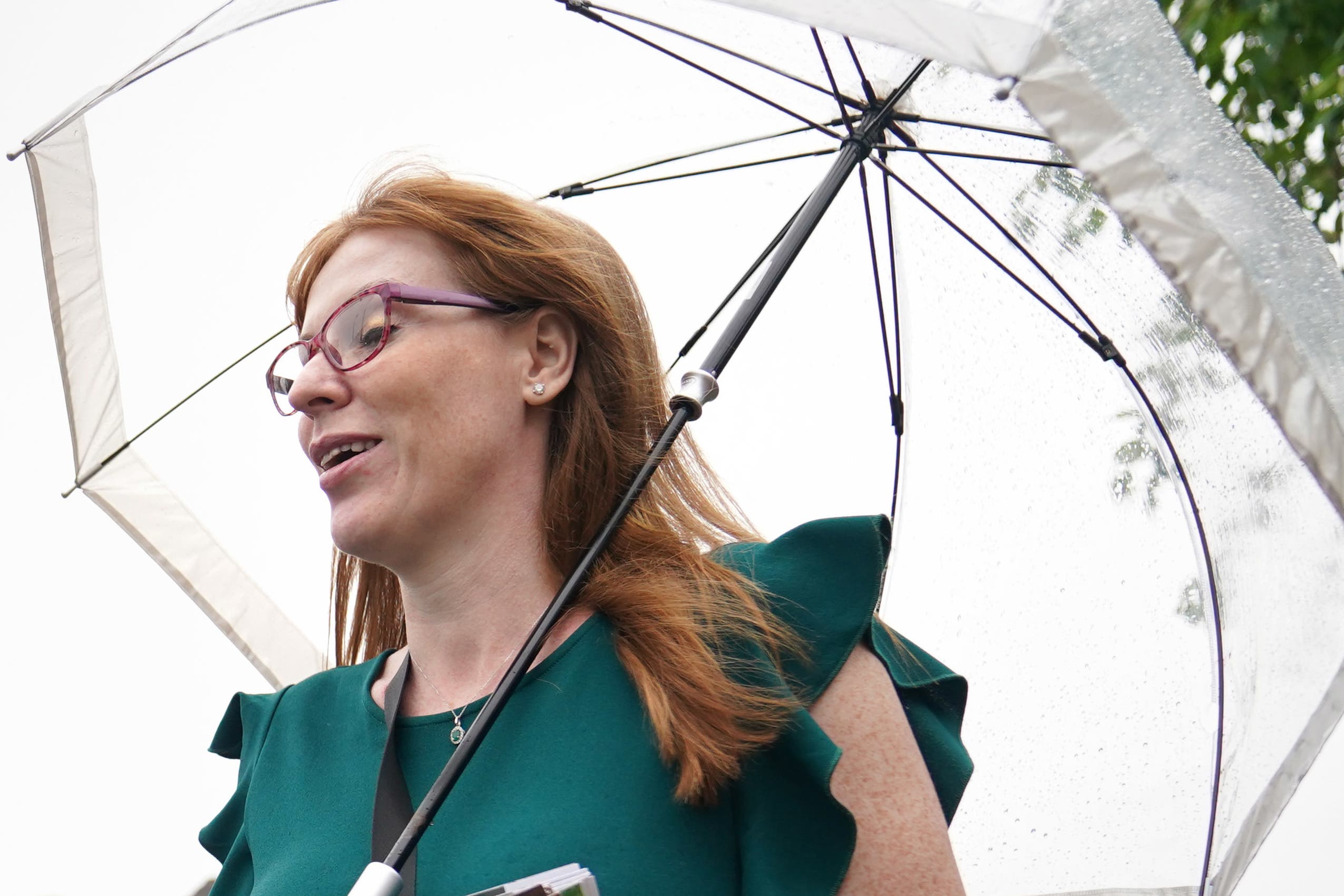Labour committed to creating more supportive transgender process – Angela Rayner
The deputy Labour leader came after the party scaled back its commitment to self-identification for transgender people.

Your support helps us to tell the story
From reproductive rights to climate change to Big Tech, The Independent is on the ground when the story is developing. Whether it's investigating the financials of Elon Musk's pro-Trump PAC or producing our latest documentary, 'The A Word', which shines a light on the American women fighting for reproductive rights, we know how important it is to parse out the facts from the messaging.
At such a critical moment in US history, we need reporters on the ground. Your donation allows us to keep sending journalists to speak to both sides of the story.
The Independent is trusted by Americans across the entire political spectrum. And unlike many other quality news outlets, we choose not to lock Americans out of our reporting and analysis with paywalls. We believe quality journalism should be available to everyone, paid for by those who can afford it.
Your support makes all the difference.Trans rights do not “conflict with women’s rights”, Angela Rayner has insisted, after Labour scaled back its commitment to self-identification for transgender people.
The deputy Labour leader said the party was still committed to creating a more “supportive process” to help people transition, after Sir Keir Starmer claimed last month that a system which would allow people to legally identify as their chosen gender without a medical diagnosis would not be the “right way forward”.
Sir Keir’s approach to gender ID emerged from the party’s national policy forum last month, and was confirmed by shadow women and equalities secretary Anneliese Dodds in a Guardian article.
It leaves the UK party at odds with Scottish Labour, which backed the SNP-led Scottish Government’s Gender Recognition Reform Bill.
In January, the Bill was blocked from becoming law by the UK Government over fears it could create contradictions in UK-wide equality law.
The Scottish Government will have the opportunity to challenge this through the courts in September.
Asked about Labour’s changing position on trans rights, Ms Rayner told BBC Radio 4’s Today programme: “I still stand by they are not in conflict with women’s rights.
“We have talked about the Gender Recognition Act, we have talked about reform, we have talked about a process. Of course there has to be a process for people that is supportive and that is when you get into the weeds of how you ensure that we do have trans rights that are compatible and compassionate and humane.
“At the moment the process isn’t, and we have acknowledged that, that there are problems with the process, and therefore there has to be a process that is a supportive process that recognises that people can transition and that we do that in a way that is supportive of those people.”
She added: “But we have also, in the Equality Act that the Labour government introduced, had the safeguards within that for women-only spaces.
“That is absolutely appropriate and we have seen the conflict of what happens when those safeguards are not put in place.”
Ms Rayner also defended UK Labour’s differing position to the Scottish party, telling Sky News that Sir Keir “believes in devolution and the Scottish Government and their right to determine their laws”.
“We were the party of devolution and it is right that we respect that,” she added.
Scottish Labour has said it remains committed to the “de-medicalisation” of the process for trans people to obtain legal recognition in their preferred gender.
In contrast, Sir Keir last month said: “We don’t think that self-identification is the right way forward. We’ve reflected on what happened in Scotland.
“We’ve set out that we want to modernise the process, get rid of some of the indignities in the process, keep it a medical process.”